South Asian literature is beautiful. In fact, South Asian culture, in general, is beautiful. Food, architecture, languages, art, and music – every layer of the traditional, South Asian lifestyle radiates a certain warmth that remains universally incomparable. And, of course, literature is no different.
No one does words better than South Asian authors, and the five books we look at today are a testament to that – and the beauty and wonder of South Asian literature.
The Kite Runner by Khaled Hosseini
“The unforgettable, heartbreaking story of the unlikely friendship between a wealthy boy and the son of his father’s servant, The Kite Runner is a beautifully crafted novel set in a country that is in the process of being destroyed. It is about the power of reading, the price of betrayal, and the possibility of redemption, and an exploration of the power of fathers over sons—their love, their sacrifices, their lies.”
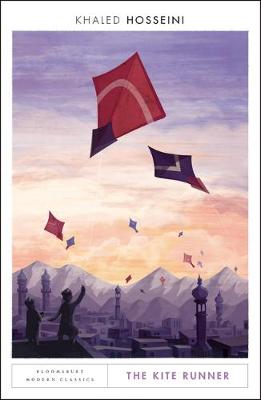
As the blurb suggests, The Kite Runner is a story about many things – including friendship, family, love, and loss; all set against the backdrop of war. But more than that, it is a raw, often brutal, yet stunning account of Afghanistan’s complex history. In short, this book is a piece of South Asian literature that will leave all readers awestruck and in tears. Hats off to Hosseini for covering the Afghan people’s struggle and not compromising their culture’s beauty in the process.
More by Khalid Hosseini
A Thousand Splendid Suns | And The Mountains Echoed
The Ice-Candy Man by Bapsi Sidhwa
“The 1947 Partition of India is the backdrop for this powerful novel, narrated by a precocious child who describes the brutal transition with chilling veracity. Young Lenny Sethi is kept out of school because she suffers from polio. She spends her days with Ayah, her beautiful nanny, visiting with the large group of admirers that Ayah draws. It is in the company of these working-class characters that Lenny learns about religious differences, religious intolerance, and the blossoming genocidal strife on the eve of Partition…”
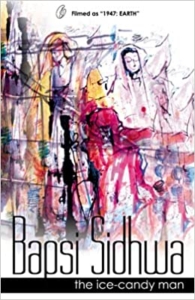
The Ice-Candy Man, also known as Cracking India, is a unique book. It covers an event as heartbreaking and weighty as the 1947 Partition from a young and innocent Parsi girl’s perspective. This story goes against stereotypical South Asian literature in countless ways, one of them being representation. The cast of characters Sidhwa employs to bring her story to life is astoundingly diverse – the reader gets an insight into the fears and joys of pre-partition Muslims, Hindus, Sikhs, and Parsis. You will find yourself laughing and crying within the span of merely 300 pages, and that’s the beauty of this book!
More by Bapsi Sidhwa
The White Tiger by Arvind Adiga
“Introducing a major literary talent, The White Tiger offers a story of coruscating wit, blistering suspense, and questionable morality, told by the most volatile, captivating, and utterly inimitable narrator that this millennium has yet seen…”
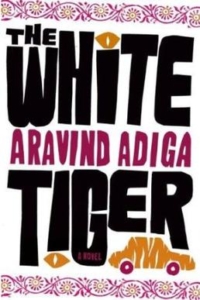
A typical rags-to-riches fable, The White Tiger, is a wonderful take on India’s ongoing social class struggle. In Vikram Balram, Adiga brings to life the ultimate anti-hero; he reflects everything we turn a blind eye to in South Asian society. Needless to say, you will hate him but also sympathize with him at the turn of every page.
Fun fact: A Netflix film based on the book is out now. So, if you want your watching experience to be more immersive, do pick up the book first!
More by Arvind Adiga
Home Fire by Kamila Shamsie
“…Suddenly, two families’ fates are inextricably, devastatingly entwined, in this searing novel that asks: What sacrifices will we make in the name of love?
The suspenseful and heartbreaking story of an immigrant family driven to pit love against loyalty, with devastating consequences.”
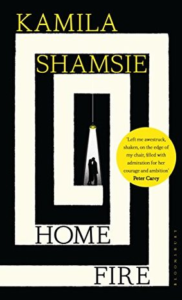
Kamila Shamsie’s novel is inspired by Sophocles’ Antigone – a Greek mythological play that tackles the same themes as Home Fire. Shamsie takes an already beloved tale, spins it on its head so that it captures the plight of Muslim immigrants worldwide, and presents to the reader an unforgettable, heartbreaking story.
More by Kamila Shamsie
Kartography | Salt, and Saffron
Dozakhnama by Rabisankar Bal
“Who tells the greatest story — God or Manto? Dozakhnama: Conversations in Hell is an extraordinary novel, a biography of Manto and Ghalib, and a history of Indian culture rolled into one. Exhumed from dust, Manto’s unpublished novel surfaces in Lucknow. Is it real, or is it fake? In this dastan, Manto and Ghalib converse, entwining their lives in shared dreams. The result is an intellectual journey that takes us into the people and events that shape us as a culture…”
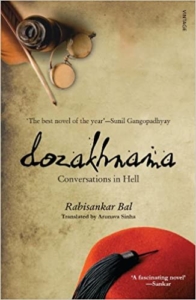
Dozakhnama is essentially a long and exhilarating fictitious conversation between Saadat Hasan Manto and Mirza Ghalib. Need I say more? Bal weaves a story out of these two men’s lives and gives us the full range of South Asian history, culture, and the literary movement that is alive to this date. Dozakhnama is a mesmerizing tale, originally written in Bengali but translated into equally beautiful English words by Arunava Sinha.
More by Rabisankar Bal
Final Note
I want to iterate that this list not exhaustive by any means; this is my take on where to start with South Asian books. In actuality, this is merely the tip of the iceberg – South Asian literature has so much more to offer, and I hope we all find texts that we read, enjoy, and cherish for a lifetime!
Find more books and poetry-related posts on Storyteller’s Saga here.
-
Pingback: Reviewing Blasphemy by Tehmina Durrani - Storytellerssaga


